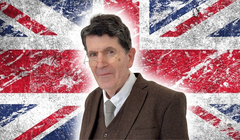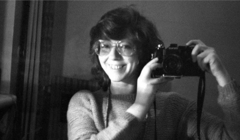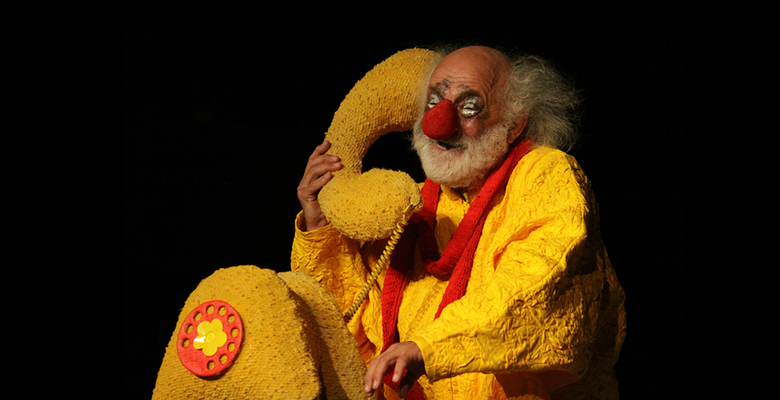
This winter, Slava Polunin’s legendary Snowshow is returning to London. More than simply a theatrical performance, this magical combination of clowning, drama and performance art rekindles belief in fairytales and childlike wonder. Slava Polunin is one of the most exuberant artists of modern times. His creativity has become a cult sensation and won more than 20 prestigious international rewards, including an Olivier Award and a nomination for a Tony. Before the start of his show in London, running from the 18th of December to the 12th of January, the maestro will perform in Sunderland and Brighton.
In an interview with Kommersant UK, Slava tells us of his favourite British comedians, his inability to part with his alter-ego Asisyai, his capacity to dream and the most important gift given to us all.
You almost create the impression of a luminary, guided by an inner purpose, living to shine and sharing your light with others. How did you come to this prominence? What were the key stages? Who or what helped you along the way?
Your question deserves a whole book in reply but I'll try to keep it short. First of all, by my nature, I'm more of an optimist who doesn't like to grumble. Life tests everyone, and sometimes it breaks them. The creative process rescued me and keeps me afloat; I dive into that fantastic and fantastical space from where all the difficulties and the looming obstacles in your way no longer seem like cause for sour grapes or being down in the dumps, but rather as challenges; invitations to choose a new path. Wherever it may lead, just having that choice brings a special feeling of excitement and stops you from hanging your head and whingeing. I call this moment when you have to find a new path, a new source of creativity, ‘feet in the water’. I literally sit down on a river bank, put my feet into the water and start to analyse what worked out and what went wrong. I think about what the next step should be and how it can help me in my creativity… This state can last for several days and then I always know where I have to go next and what unattainable aims I’ll have to achieve. By the way, this also helps me a lot: I always set myself the most unattainable and unrealisable goals and tasks. The more unlikely they are, the stronger the impulse to realise them and the more energy I have to put them into practice. It works, you see; it's worked for me many times. Once, at the end of the 1980s, my friends and I had the idea of holding a festival which would travel around Europe and stage a sort of drama camp in different cities with a myriad of performances and shows, with the chance to start new projects and schools for trainee street artists. At the time, it seemed just impossible to pull this off in a world fragmented by borders, but we fulfilled our dream and made it work. The Caravan of Peace toured Europe for six months, despite the difficulties and obstacles.

You're deeply involved in business. However, your principles seem more suitable for a spiritual life. How do you act when business acumen is required, yet this approach goes against your principles?
I try to act so that these two elements are in harmony. After all, it's difficult to make it in show business without both of them. I never agree to take part in projects which go against the principles on which I base my creative life and my team's work. I have clear rules to preserve the creative spirit of myself and my team. This is a complex and multifaceted topic. A simple example is that I never play more than three performances in a row because I know that I won't have enough energy to give my all on the fourth performance. We never give more than eight performances in a week and we are very protective of our free time, which we try to spend in the countryside. There are always special festive people in our team, who set the general atmosphere behind the scenes where there’s endless laughter and all kinds of fun. We always try to keep things cheerful. Just try reading our managers’ correspondence!

Your clown persona Asisyai brought you to fame. How do you get on with that person today? Is there anything you would like to say to your previous self at the time when you first performed in that role?
I have never parted with Asisyai. You see, a clown's mask is not a role which you play one day and then appear before the audience in a different form the next. My clown mask is part of my being. It's impossible to take it off and hang it on a peg. Your clown lives inside you, grows with you, becomes wiser or dumber with you and in the end, ages with you as well. You walk together on life's road, you make important decisions together, you reach heights and suffer setbacks together and of course, your clown changes together with you, so Asisyai changes makeup, rhythms, costumes and mannerisms.

Your show makes people believe in miracles and you do it as someone who believes for themselves and for all the audience at once. How do you manage this? What do you do if you don't have enough belief for everyone? And how humane is it to give people this faith when the world around us has so much cruelty and cynicism?
I believe that the ability to dream, believe in miracles and fantasise is one of the most important gifts we receive from our maker. However the outside world may be, we can only make it better ourselves. Don't try to reduce the amount of evil; that's impossible. We need to increase the amount of good, joy and happiness. That's in our power. I try to create around me a world of good, kindness and happiness and try to get as many people as possible involved in it, as much as my strength and capabilities allow. Now imagine what would happen if a lot of people, not all of them, of course, created these positive spaces around them if there were more and more of these people. Maybe we would be able to at least push back the evil, of which unfortunately there is now more in the world than there is good. We mustn't try to make all of humanity happy at once. Let's limit ourselves to those close to us, our friends and relatives and gradually widen this circle. Like that, we’ll be able to achieve something.
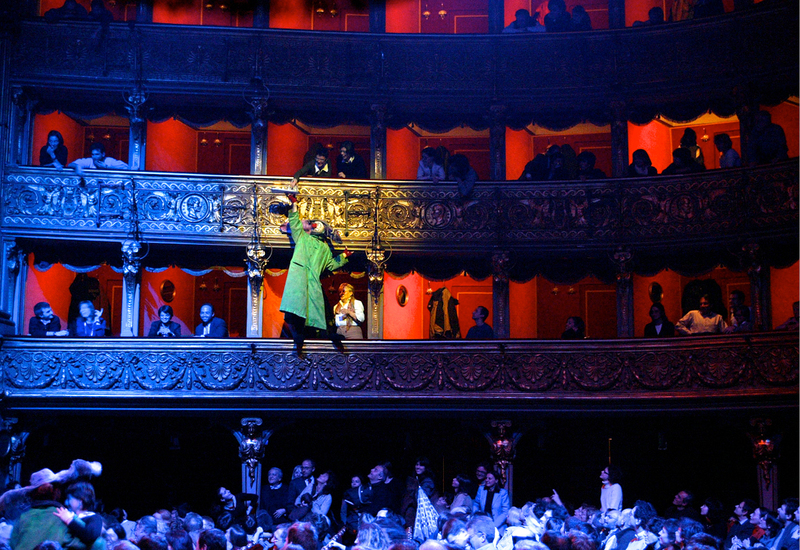
What makes London audiences and émigré audiences in general different?
I really love London audiences. They were the midwife of my show. So I am always especially anxious when I go out before a London crowd and I wait for the reaction of the audience with a quaking heart. I know that London loves my performances but each time I'm nervous before coming here on a tour. I make no distinction between the English and Russians and people from other countries living in the city. For me, they're all Londoners. Actually, I'm not very sure what an emigré audience is because everyone comes to my performances as there are no words in them.
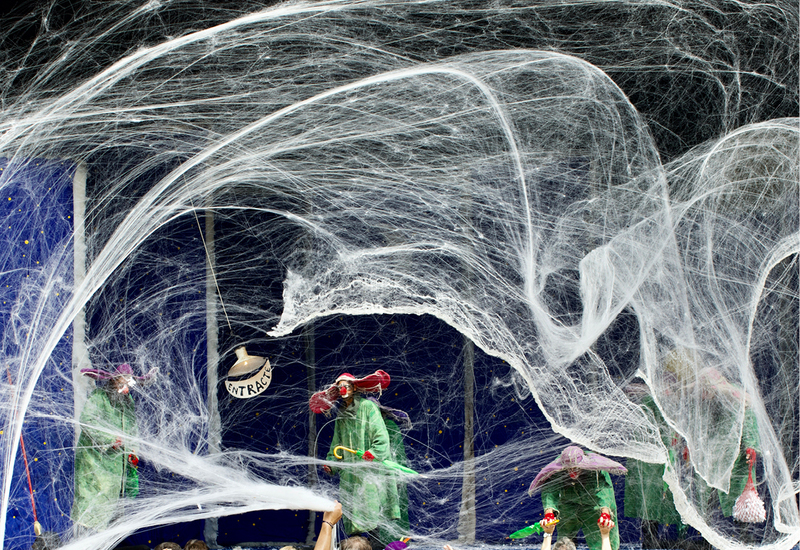
Who are your favourite British artists? Are there any who inspire you?
My favourites are the comedians, of course. The greats have played on the stages of London music halls and on its cinema screens; Chaplin, Laurel and Hardy, Norman Wisdom and of course Monty Python; they're my favourites. Joseph Grimaldi, Max Wall, Dan Leno and Tommy Cooper. I can watch their films endlessly. I even got to work with Terry Gilliam on my performance of Diabolo.
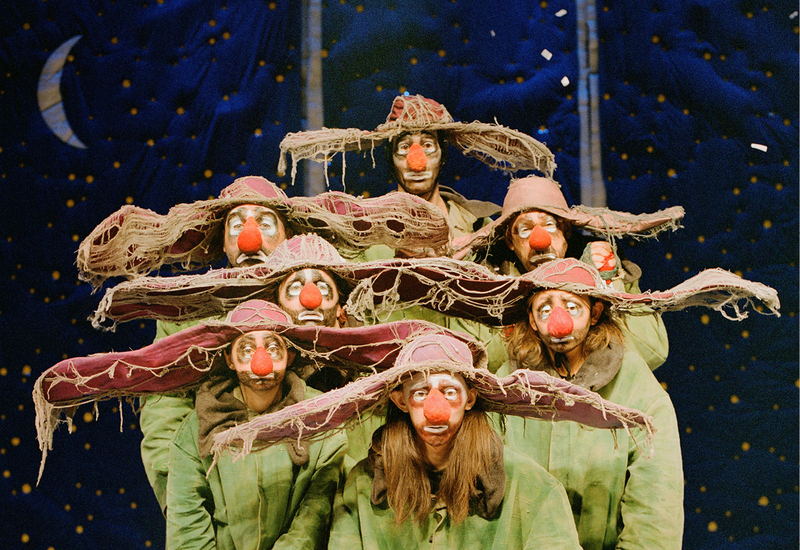
Where will you go after your London show?
We recently finished our tour of China, and next is France, Switzerland and Italy.




